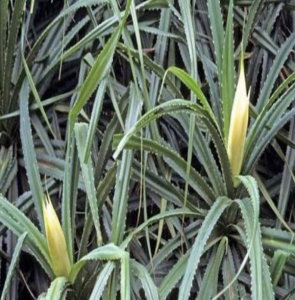 Ganjam Kewda Rooh is an aromatic essence, which is native to the Ganjam district in Odisha, India. The plant, commonly referred to as screw pine, thrives in the coastal belt between the Rushikulya and Bahuda rivers. The essence extracted from its male flowers is prized for its strong fragrance, which has led to the recognition of Ganjam Kewda as a Geographical Indication (GI) product.
Ganjam Kewda Rooh is an aromatic essence, which is native to the Ganjam district in Odisha, India. The plant, commonly referred to as screw pine, thrives in the coastal belt between the Rushikulya and Bahuda rivers. The essence extracted from its male flowers is prized for its strong fragrance, which has led to the recognition of Ganjam Kewda as a Geographical Indication (GI) product.
The region produces about 85-90% of India’s Kewda essence, making it a significant contributor to the nation’s perfume industry. Rooh Kewda, a highly concentrated and rare oil, is produced through a meticulous distillation process that involves multiple stages. In each cycle, hundreds of Kewda flowers are distilled, yielding both aromatic water and oil. This labor-intensive process ensures that the final product is of the highest quality, capturing the complex and distinctive fragrance that natural Kewda oil is known for.
Approximately 370 pounds of flowers are required to produce a single ounce of Rooh Kewda, emphasizing its rarity and high value. Each year, about 200 kilos of the oil are produced, with prices reaching up to $7000 per kilo. The Ganjam Kewda industry supports thousands of local workers and is a key economic driver for the region. In contrast, the more common Kewda attar is less expensive, costing around $1500 to $1800 per kilo. The oil is distinguished by its high concentration of methyl ether of beta-phenylethyl alcohol, which gives it a characteristic aroma.
Kewda water and oil are also used in traditional Indian cooking and are essential flavoring agents in sweets like *rasgulla* and *gulab jamun*, as well as in aromatic rice dishes. Despite the availability of synthetic alternatives, the genuine Kewda products from Ganjam remain highly coveted for their unmatched quality and authenticity, playing an integral role in both perfumery and culinary traditions in India.






